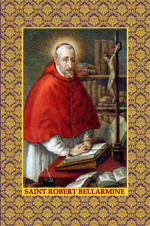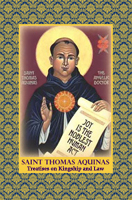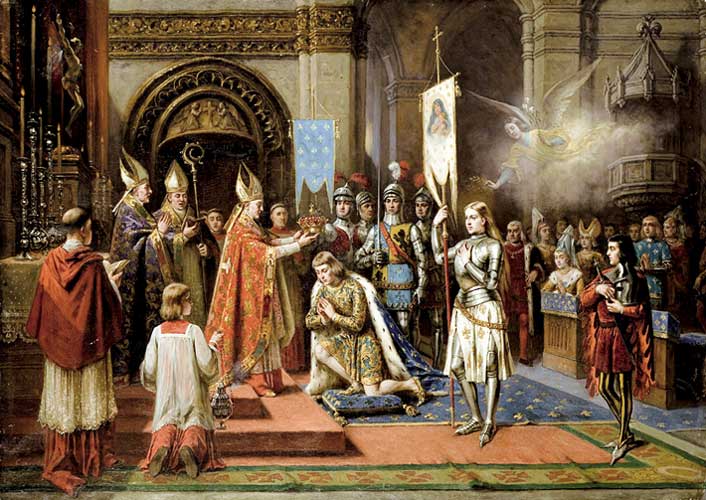Absolutism and Divine Right
American Foundations
Intelligence Report #7
ABSOLUTISM UNDERSTOOD AS the exercise of power and authority over both spiritual and temporal affairs of church and state had its origins in the Protestant Reformation. It is associated with the Divine Right of Kings (which also has a Protestant etiology), although not quite the same thing. As explained below, Divine Right has to do with the origin or source of a king’s power; whereas Absolutism has to do with the extent of that power.
Divine right and absolutism are occasionally combined in one person such as James I, the Protestant King of England, who claimed absolute rule over both church and state by divine right. His advocacy of divine right was supported by his private theologian, Robert Filmer who wrote, “Patriarcha” to refute the Catholic idea of limited sovereignty as represented in the works of Saint Robert Bellarmine, esp. Bellarmine’s “Treatise on Civil Government” and of Saint Thomas Aquinas “De Regiminie Principium”. Catholic kings were limited by a long tradition of (1) divine law, (2) natural law, (3) power of the aristocracy (as witnessed by the “ancient” rights claimed by the Catholic aristocracy in the “Magna Carta”, (4) interdict of the church, and by (5) their coronation oaths. Because the Protestant James I (also crowned as James VI of Scotland 1567–1625) claimed to rule by divine right, he also proclaimed himself above the laws and thus rejected most of the above limitations to his power:
“The state of monarchy is the most supreme thing upon earth, for kings are not only God’s lieutenants upon earth, and sit upon God’s throne, but even by God himself are called gods…Kings are justly called gods, for that they exercise a manner of resemblance of divine power upon earth: for if you will consider the attributes to God, you shall see how they agree in the person of a king.”
James continued:
“I conclude then this point, touching the power of kings with this axiom of divinity: that as to dispute what God may do is blasphemy… so is it sedition in subjects to dispute what a king may do in the height of his power.”[4]
James believed in divine right and absolutism. No earthly power, political or religious, had authority over him; he ruled, so he wrongly thought, both church and state by fiat.
Christian kings, such as James I, who claim to rule by divine right, assert more than a belief that they rule by decree of God; they also claim that regal blood flows in their veins as determined by a sacral lineage reaching back through the generations to King David to whom God made the following eternal covenant:
“When your days are fulfilled and you rest with your fathers, I will set up your seed after you, who will come from your body, and I will establish his kingdom. He shall build a house for My name, and I will establish the throne of his kingdom forever.
l
And your house and your kingdom shall be established forever before you. Your throne shall be established forever” (2 Samuel 7:12-16).
James claimed to be descended from David and thus to sit on the regal throne of the warrior king and Messiah established by God Himself. If the king sits on the throne of David, he rules over a sacral state by divine decree, over all things sacred and secular, spiritual and temporal, and his power has no limits. This is quite an exaggerated claim foreign to more modest Catholic ideas of limited monarchy. From the Catholic perspective, kings serve at the behest of the church, the Bride of Christ who places limits on the exercise of their power. Jesus told Peter that He would bind in heaven whatever Peter bound on earth (Matthew 16:19); this includes kings as well as doctrinal matters. In short, in a Catholic nation the legitimacy of a king depends on his coronation by the Church, which in turn implies limits on the exercise of regal power.
The Catholic Church, moreover, never assented to any state or monarch having authority over its sacred teachings, its liturgy, prayers, and councils or over religious matters concerning the salvation of souls in its care. The investiture controversy bears witness to this historical verity. It was 16th-17th century Protestant England and 18th century revolutionary France that subjected the church to the state and made religious dogma a matter of public policy. Neither absolutism, nor its closely related correlate, divine right, are found in Catholic social theory, in the teaching of any of its councils, or in the writings of its saints and doctors.
Although there were Catholic kings who claimed divine right and who endeavored to rule both church and state, such as King Louis XIV of France, both ideas are antithetical to Catholic social teaching and rejected by the Church. Although Louis XIV was able to convince the French Episcopate to issue the “Declaration of the Clergy“[5], in an attempt to extend the droit de regale (rights of the king) to include appointment of various bishops, abbots, and priors, the Holy See resisted his attempts to trump the pope and to rule over the Church of France by facile appeal to rule by divine right.
There is only one king who rules over the Church by divine right, Christ the King whose blood-line is traced to the lineage of King David (Matthew 1:1-16). The covenant made with David was fulfilled forever in the person of Jesus Christ, the “Son of David’ (Matt 9:27; 12:23; 15:22; 20:30; 21:9; 21:5). No other monarch, no matter what he might claim, no matter how much court sycophants might bend scripture, and no matter to what extent acquiescing bishops might go to confirm him as head of a state church, no other monarch rules by divine right except Christ the King, the Son of David, whose throne will stand forever.
Because that is well understood, the Catholic Church never accepted the idea of divine right or the idea of absolutism that falsely attends it. All Catholic monarchs are confirmed and consecrated by the Church; this is why Saint Joan of Arc went to such trouble to have Charles the Dauphin crowned and anointed with holy oil by the bishops at Reims thus becoming King Charles VII. No Catholic king can claim to rule by divine right unless the church approves, confirms, and anoints him, in which case, the king serves by right of the church and therefore, in Catholic countries, is subject to and can be disposed by the church.
After coronation, a Catholic king might be said to rule by divine right, but this idea of divine right is not necessarily tied to any lineage blood claims nor does it permit absolute rule over the church by a Catholic king, or by any king. If any form of absolutism is ever permitted, or more correctly tolerated, it would be a type of absolutism over temporal matters and then subject to all of the checks mentioned above or any others that might be devised.
Although the Catholic Church used terminology” such as “royal God-given rights“, or “by the grace of God”, the title by “divine right” is an egregious exaggeration. Pagan kings of the Middle East and emperors of Rome were often invested with absolute power and revered as gods. This long accepted practice was mitigated, amended, and then abrogated by the Catholic Church when it formalized the reduction of kingly power by promulgating the Medieval doctrine of the Two Swords introduced in the fifth century by Pope St. Gelasius, and expanded in the 14th century by the bull “Unam Sanctam“, written by Pope Boniface VIII, who further instituted the idea of temporal rule entrusted to lay men and women while the clergy retained spiritual rule thereby bringing an end to pagan absolutism. It was not until the Reformation that the idea returned. Because papal and ecclesial authority had been rejected by the Reformers, no other power existed in Protestant nations save that of the state. In this situation, the growth of absolutism was inevitable.[6]
Catholic kings, like Protestant kings, often endeavored to protect the unity of the faith in their respective realms; nonetheless, no Catholic king ever ruled the church, decided its dogma, directed its liturgy etc. as the Protestant kings did in England beginning with absolutists Henry VIII, his daughter Elizabeth, and then the Stuart line (of which all but one, James II[7], were Protestant) who all claimed to rule both church (Anglican Church) and state by divine right. The Catholic Church never accepted or bestowed the title by “divine right” on any king. If there were Catholic Kings who mistakenly claimed to rule by “divine right”, the mistake was theirs not the Church’s.
To state that the Catholic Church was an advocate of divine right is to misunderstand her social and political teachings, probably because those making the claim never read these teachings, esp. the teachings closely associated with the idea, such as the Medieval teaching of the “Two Swords” promulgated by Boniface VII in his bull, “Unam Sanctum” (1302) and those of Bellarmine and Aquinas indicated above.
The Catholic Church certainly influenced but never ruled the state in France or in England, nor was the universal church ever controlled by the state in France or in England. King Louis XIV of France imposed Catholicism, appointed bishops in his realm, and claimed to rule by divine right, but the Church never recognized his claim to such rule and was engaged in a constant battle with him over the succession of bishops and governance of the church. If he had power over the church, he could have altered her teachings and established new dogma; this was something, for all his apparent arrogance, he never did. For example, in his battle with Jansenism he did not rely on his own interpretation of dogma but consistently deferred to the papacy.
In conclusion, the Church was never ruled by the kings of France or England nor did the pope or bishops ever govern the temporal affairs of France or England, which were entrusted to the king or queen. The governments of 18th century France and of 16-17th century England established their own Protestant and secular national churches and then took control of economic, political, and religious affairs of their respective nations. Once the Liberal “Philosophes” gained power in France, they unleashed a reign of terror against the Catholic Church and aristocracy, invested themselves with authority to establish a new secular religion, and established new national feast days such as the “Festival of Reason”[8] congruent with their newly institutionalized secular religion. Absolutism, in short, was an Anti-catholic secular and Protestant thing.
Conclusion
Divine Right and absolutism are two closely related but different political phenomena. Divine Right has to do with the origins of power by the tracing of blood lines back to King David whose throne was especially anointed by the Father for His Son, the Messiah and King of Kings. Clearly, once this throne was occupied by Jesus, no other king, no matter how magnificent, wise, or self-promoting could rightly claim it. Thus, the Catholic Church has never advocated, advance or consecrated the idea of kingly rule by divine right. If some kings claim to rule by divine right, it is a false claim. However, it could be construed as true, if the claimant is asserting that his power comes from God without any special claims to a royal bloodline going back to David and without any additional claim to rule over the church. All legitimate power comes from God, even presidents and congressmen receive their power from God.
Absolutism is a closely related to divine right because any king claiming to rule by divine right can be presumed to have absolute power. Nonetheless, absolutism, unlike divine right, is not about the origins of power, but the extent of power. Absolute power can extend to the temporal realm alone, as in the case when a king has plenipotentiary power over judicial, executive, and legislative affairs and cannot be checked. An absolutism of an even more grandiose species is that exercised by rulers who, like Henry VIII, claimed power over both the temporal and spiritual realms.
Either way, the Catholic Church never assented to either one of these two types of absolutism. Clearly, it could not assent to the latter; it is the pope as Vicar of Christ who rules over the spiritual affairs of the Church. No pope has ever acquiesced on this issue to any temporal leader, not even to the Emperor of Rome, albeit, they have worked closely with such leaders at various times in highly nuanced fashions. The former type of absolutism clearly never existed in a Catholic country because Catholic kings receive their authority to rule from the church which retains a spiritual-moral check on their behavior. Many Catholic kings and princes have felt the sting of interdiction or of excommunication thereby relieving their subjects from fealty to the offending lords and monarchs.
_____________________________________________
ENDNOTES
[1] http://kolbefoundation.org/gbookswebsite/studentlibrary/greatestbooks/aaabooks/bellarmine/Framecivilgovch1to4.html
[2] http://www.kolbefoundation.org/gbookswebsite/studentlibrary/greatestbooks/aaabooks/aquinas/regno.html
[3] http://www.orbilat.com/Languages/Latin/Texts/06_Medieval_period/Legal_Documents/Magna_Carta.html
[4] Norton College: (http://www.wwnorton.com/college/history/ralph/workbook/ralprs20.htm).
[5] According to the Concordat of Bologna (1516) agreed to between the Vatican and the Kingdom of France, the right to present candidates for abbot, prior, or bishop was conceded to the king. The pope retained the more solemn right to confirm. Louis XIV decided to extend his power over church property and appointments to vacant benefices, and place limits on the authority of the pope in violation of the Concordat. At an Assembly of the Clergy at which this topic was the main agenda item, most of the bishops agreed to the king’s demands and the issued the “Declaration of the Clergy” in favor of the king.
Pope Innocent XI (1682) responded by annulling all that the Assembly of Clergy had conceded to the king. His successor, Pope Alexander VIII (1690) issued Multiplice Pastoralis Officii in which he abrogated the entire work of the Assembly and declared the “Declaration” illicit, invalid, and without any force. In response, Louis XIV withdrew his demands and submitted a letter of retraction to Pope Innocent XII (1693).
[6] “The Protestant Reformation further exacerbated the need of kings to justify their authority apart from the pope’s blessing, as well as to assert their right to rule the churches in their own realms. The advent of Protestantism also removed the counterbalancing power of the Roman church and returned the royal power to a potential position of absolute power” (New World Encyclopedia: http://www.newworldencyclopedia.org/entry/Divine_Right_of_Kings)
[7] James was also deposed and forced to abdicate by Parliament and his Protestant son-in-law, William of Orange in a coup known as the Glorious Revolution– he never regained the throne.
[8] The” Festival of Reason” was instituted on 20 Brumaire, Year II (November 10, 1793). Churches throughout France, including the Cathedral of Notre Dame, were profanated and transformed into “Temples of Reason”. The Altar of the Eucharist was desecrated by being turned into an “Altar to Liberty”. A new public liturgy was introduced in praise of the “Goddess Reason” accompanied by festive dancers wearing white Roman dresses and tricolor sashes emblematic of the revolution. This was the beginning of the dechristianization and secularization of France and Continental Europe.


